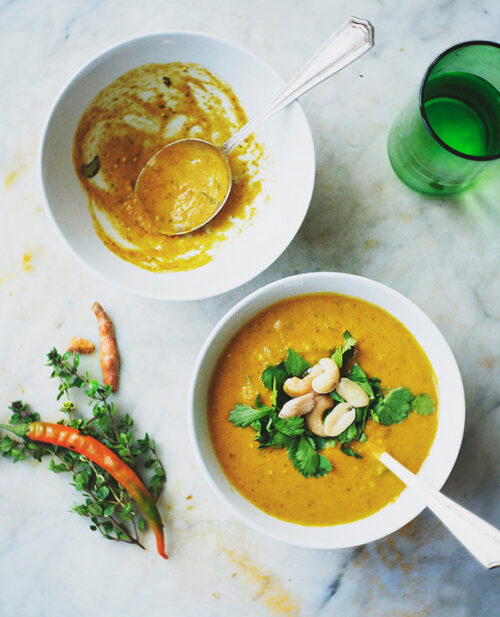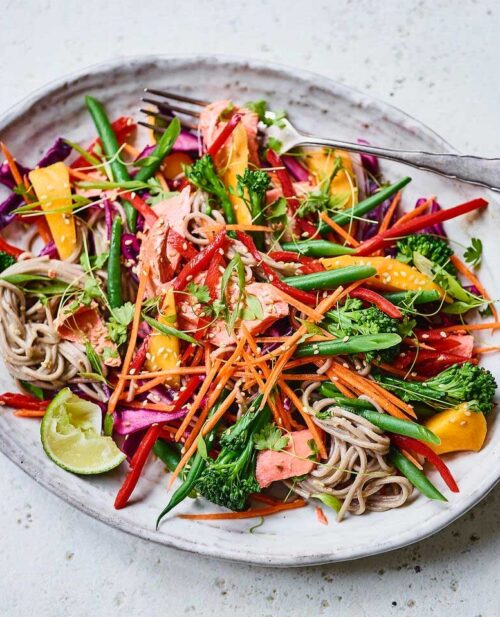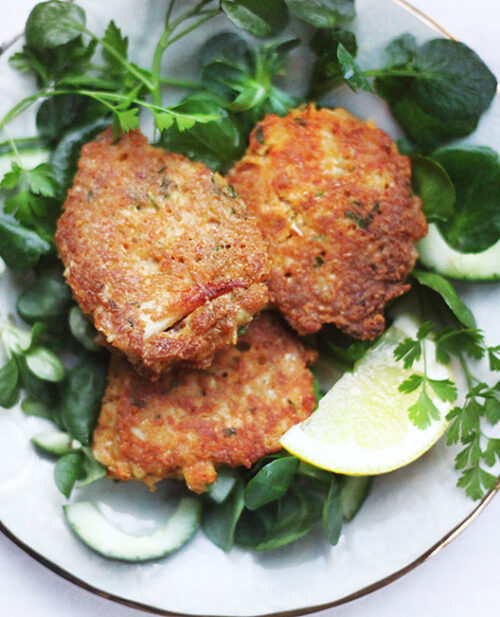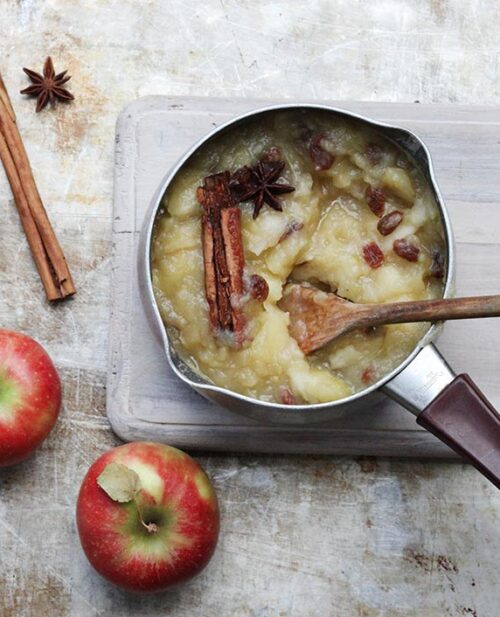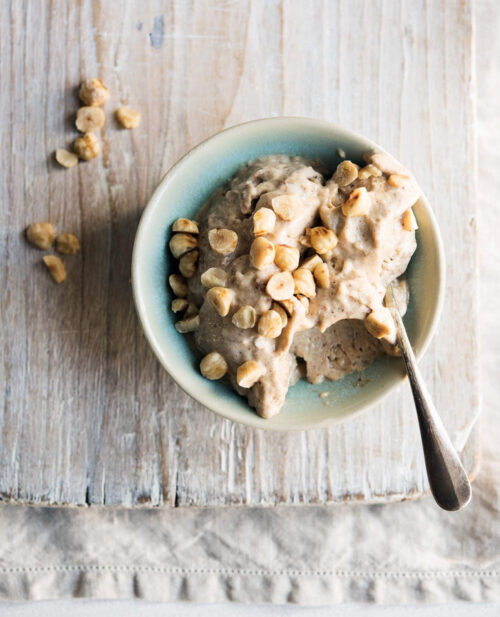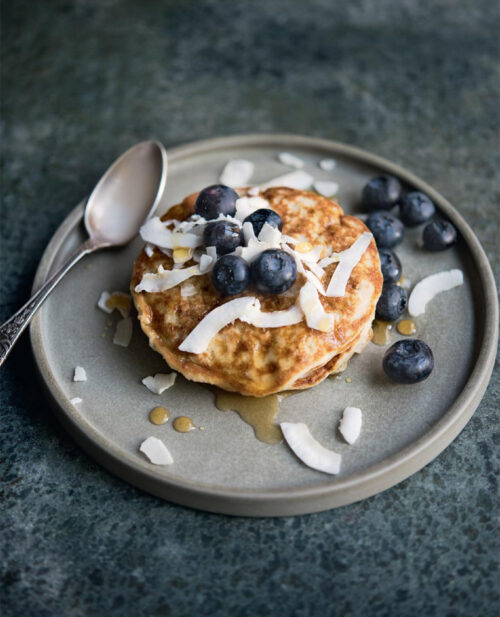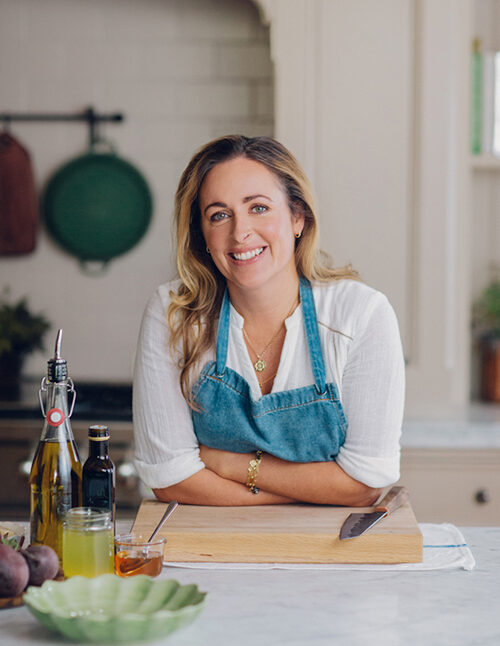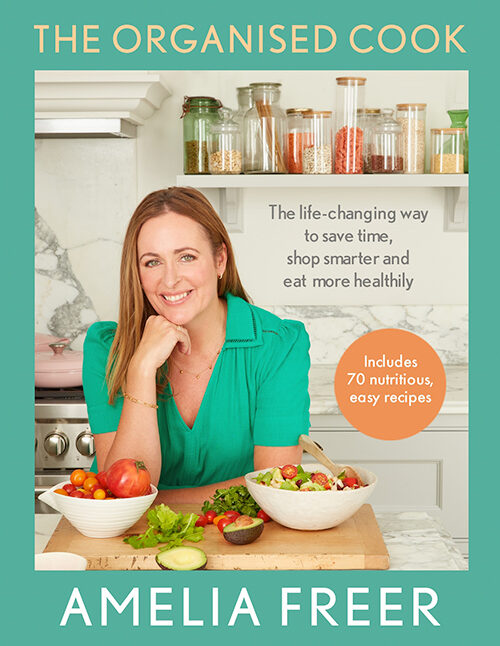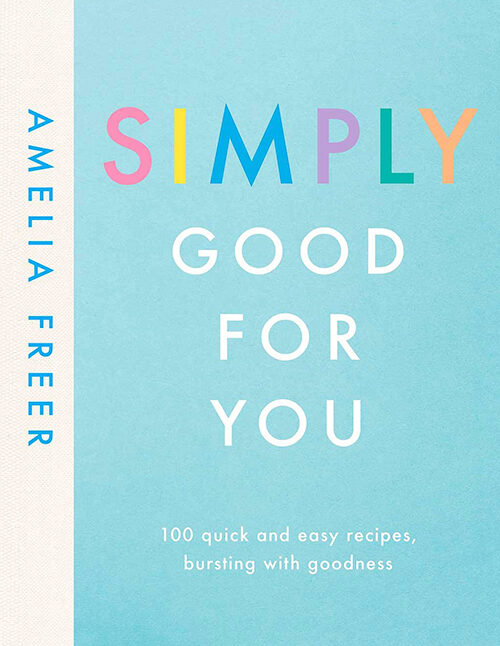6 Recipes for Good-Mood Food
Nov 2022
Good food is, for me, a huge source of comfort. That includes the process of cooking as well as sharing the resulting meal. Perhaps the most powerful impact that food can have on our mood is not always what we eat, but who we eat it with. I sometimes feel that the best medicine for melancholy is a simple meal enjoyed with good company. Simplicity is essential though – a relaxed informality from everyday dishes seems to open people up to intimate conversation more than a fancy meal ever can (although there is always a place for feasting).
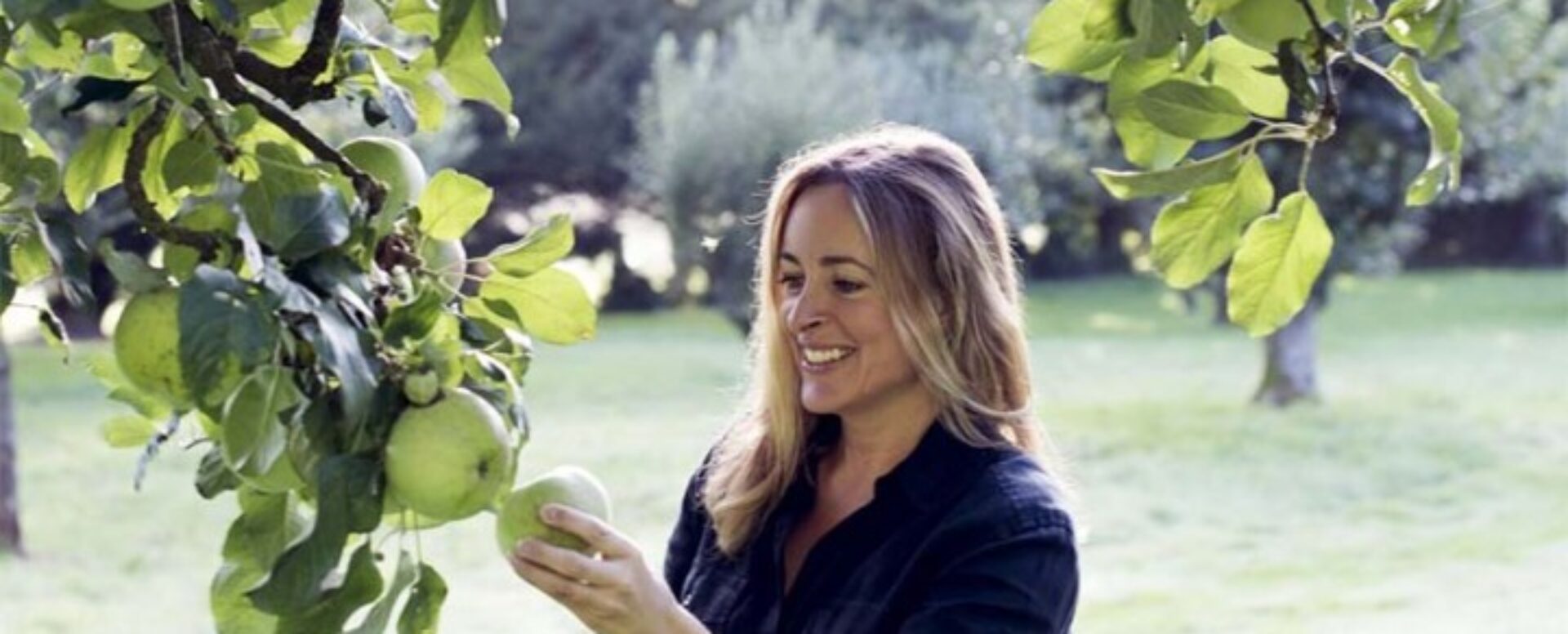
If, however, we consider food from a nutritional science lens for a moment, there are certain nutrients that research suggests may be beneficial to mood. Though I am cautious to make it clear that nutrition is a useful adjunct – not a replacement for other forms of mental health support. For some people, however, it can be really helpful. Not just as the result of digesting and absorbing brain-healthy nourishment, but also from the mindset of self-care and the gentle creative process required to bring a meal to the table. It’s a holistic experience in the truest sense.
I thought I’d share 6 of my favourite good-mood dishes from my website, some of which I’ve included because of their nutritional value and some because they are just quick and deliciously comforting.
Carrot & Turmeric Soup
Increasingly, the link between body inflammation and low mood is being examined. While we are quite a long way off knowing whether or not dietary changes can specifically manipulate mood by reducing inflammation, there’s no harm in enjoying this vibrant and comforting soup in the meantime – complete with turmeric, a spice long recognized for its potential anti-inflammatory benefits (Hewlings and Kalman, 2017). Do be generous with the black pepper though – it helps to increase absorption of the bioactive components of turmeric.
VIEW RECIPESalmon Soba Noodle Salad
It is thought that a low intake of omega-3 fatty acids (such as those found in oily fish) may predispose some people to depression and anxiety (Larrieu and Layé, 2018). General dietary advice is therefore to include at least one portion of oily fish into our diets each week – such as salmon, mackerel, trout or sardines (NHS Choices, 2018) (which also happen to be one of the key dietary sources of vitamin D).
I love this bright and beautiful salad – and any leftovers make a really good lunch the next day too. Soba noodles are easily found in supermarkets or online these days, although do make sure you rinse them well under cold water to wash away the starch before cooking or they tend to clump together.
Crab Cakes with Homemade Mayo
Shellfish tends to be a good source of zinc (particularly oysters – although I know they’re not necessarily everyone’s favourite food, hence why I’ve gone for crab here!). Zinc deficiency has been linked to a potentially increased risk of depression, so it’s sensible to ensure we have varied sources of this essential nutrient in our diet. Alongside shellfish, it is also found in beef, pork, chicken, fortified cereals, nuts, seeds and yoghurt – although soaking or sprouting nuts, seeds & grains before consuming them can help make the zinc more readily absorbed by our bodies.
I love crab and these quick and easy fritters make a really delicious light meal. I would serve them with a big pile of steamed tenderstem broccoli, plenty of lemon and perhaps a few roasted sweet potato wedges.
Spiced Apple Sauce
There has recently been an explosion of research looking into the effect that our gut microbiota – the complex ecosystem of microbes that co-exists inside us – have on our mood. While there is still a lot to be discovered, we do know that there is constant communication between our gut, brain and these microbes and that people suffering with depression may show changes to the makeup of their microbiota (Jiang et al., 2015) (Slyepchenko et al., 2016).
A good way to support the health of this diverse microbial community is to eat a varied diet, with plentiful high-fibre foods. Stewed apples contain pectin, a type of soluble fibre and are thought to be a particularly beneficial prebiotic food. Serve them with some bio-live yoghurt (a dietary probiotic) and you have a deliciously quick, gut-friendly breakfast.
Nutty Banana Nice Cream
The emotional associations between sweet foods and ‘comfort’ can be pretty strong, so if you find those cravings come calling, this incredibly creamy and delicious bowl of ice cream should hit the spot. As well as being one of our 5-a-day, the addition of a little nut butter boosts the protein and healthy fat content, slows down the absorption of fruit sugars into our blood and provides us with some additional vitamins and minerals.
I tend to peel, roughly chop and freeze any bananas going a bit over-ripe in our fruit bowl, so I always have a supply ready frozen for those moments of ‘need’.
Coconut Breakfast Pancakes
Sometimes, it’s more about the way we eat food that brings its mood-boosting properties. And to me, a lie-in (even if that’s just an extra 10 minutes from hitting the snooze button) followed by a pile of pancakes with my family, is a lovely treat. These are deliciously crisp on the outside and fluffy and soft on the inside. They are lovely for a wintery morning served with a pop of summery colour and flavour from the berry sauce.
VIEW RECIPEA note on vitamin D…
Low vitamin D levels have been linked to a low mood over the winter months (Sarkar, 2017). Here in the UK, particularly from October to late March, we can’t make enough vitamin D in our skin from sunlight. Whilst there are some food sources of vitamin D (such as oily fish, red meat, egg yolks and fortified food), these tend to only have small amounts of the vitamin in them, so it is now recommended that all adults consider taking a daily supplement of 10 micrograms (400IU) vitamin D3 during the autumn and winter months.
Do take a look at the NHS choices website or have a chat with your GP or pharmacist for more information.
References & Bibliography:
Hewlings, S. and Kalman, D. (2017). Curcumin: A Review of Its’ Effects on Human Health. Foods, 6(10), p.92.
Jiang, H., Ling, Z., Zhang, Y., Mao, H., Ma, Z., Yin, Y., Wang, W., Tang, W., Tan, Z., Shi, J., Li, L. and Ruan, B. (2015). Altered fecal microbiota composition in patients with major depressive disorder. Brain, Behavior, and Immunity, 48, pp.186-194.
Larrieu, T. and Layé, S. (2018). Food for Mood: Relevance of Nutritional Omega-3 Fatty Acids for Depression and Anxiety. Frontiers in Physiology, 9.
Lindseth, G., Helland, B. and Caspers, J. (2015). The Effects of Dietary Tryptophan on Affective Disorders. Archives of Psychiatric Nursing, 29(2), pp.102-107.
NHS Choices (2018). Fish and shellfish. [online] nhs.uk. Available at: https://www.nhs.uk/live-well/eat-well/fish-and-shellfish-nutrition/ [Accessed 4 Dec. 2019].
Sarkar, S. (2017). Vitamin D for Depression with a Seasonal Pattern: an Effective Treatment Strategy. International Physical Medicine & Rehabilitation Journal, 1(4).
Slyepchenko, A., Maes, M., Jacka, F., Köhler, C., Barichello, T., McIntyre, R., Berk, M., Grande, I., Foster, J., Vieta, E. and Carvalho, A. (2016). Gut Microbiota, Bacterial Translocation, and Interactions with Diet: Pathophysiological Links between Major Depressive Disorder and Non-Communicable Medical Comorbidities. Psychotherapy and Psychosomatics, 86(1), pp.31-46.
MORE TO EXPLORE
Please note that the information on this website is provided for general information only, it should not be treated as a substitute for the medical advice of your own doctor or any other health care professional providing personalised nutrition or lifestyle advice. If you have any concerns about your general health, you should contact your local health care provider.
This website uses some carefully selected affiliate links. If you buy through these links, we may earn an affiliate commission, at no additional cost to you. This helps to keep all of our online content free for everyone to access. Thank you.

